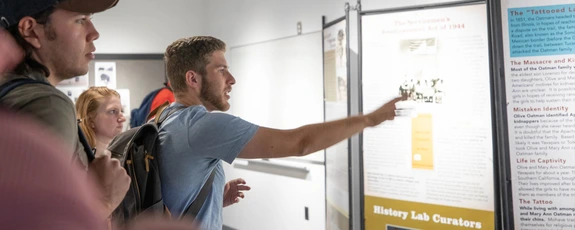
Bachelor of Arts
History
"My experience as a student in history improved my ability to write, to research, to build and express an argument... These are essential skills even in a highly technical company"
– History alumna working in technology services
Are you fascinated with the past? Explore the human experience in all its diversity, from the intimacies of family life to the formation of nations to the histories of transcontinental pandemics.
About the Major
Uncover the past through texts, images, memories, and artifacts. As a history major, you will learn how to dissect and examine evidence and assumptions; plan and organize collaborative and independent projects ; and communicate clearly and effectively. All are highly marketable skills.
Areas of Study
You will take courses in social, environmental, gender, political, and military history, and much more (did we mention histories of cuisine and culture?)
Age of Empires IV
Starting in the spring of 2022 Age of Empires IV players may be eligible for UArizona credit through the History Department's collaboration with Microsoft.
Required Minor
You are required to have a minor or second major. We encourage you to specialize in one area where the skills you learned in History can be applied. Examples might include any area of the humanities, science, law, healthcare, or business and marketing.
Double Major
History makes a great second major or degree with almost any field. Check out our Double Major options with other UA departments.
Career Pathways
You will be prepared with skills that can be applied toward jobs requiring interdisciplinary and creative thinking. Our graduates are finding jobs in virtually every sector of the 21st-century economy, and some carry these skills over into graduate programs or law school.
Some of the potential jobs can include:

